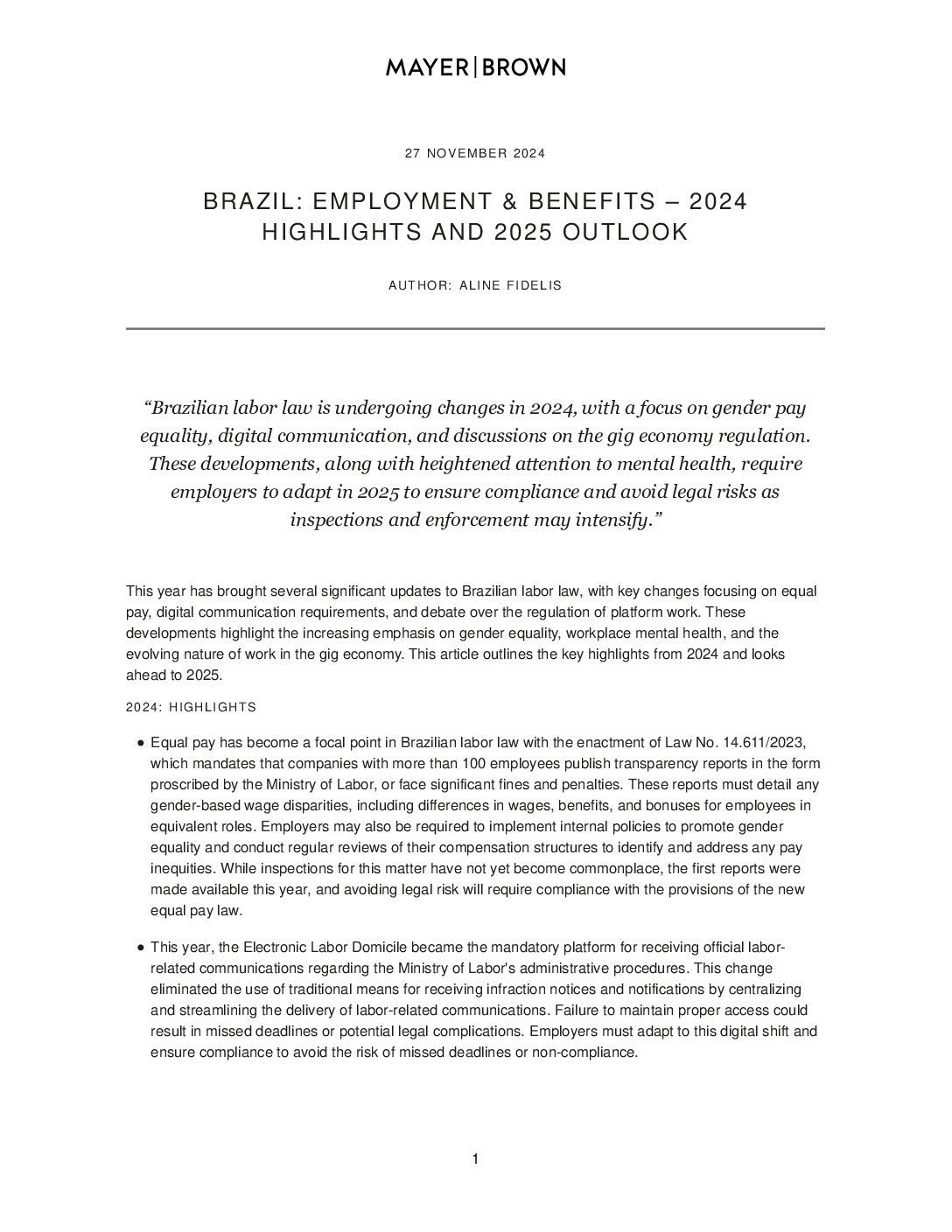Brazil: Employment & Benefits – 2024 Highlights and 2025 Outlook
By Aline Fidelis This year has brought several significant updates to Brazilian labor law, with key changes focusing on equal pay, digital communication requirements, and debate over the regulation of platform work. These developments highlight the increasing emphasis on gender equality, workplace mental health, and the evolving nature of work in the gig economy. This article outlines the key highlights from 2024 and looks ahead to 2025. Get the report here










